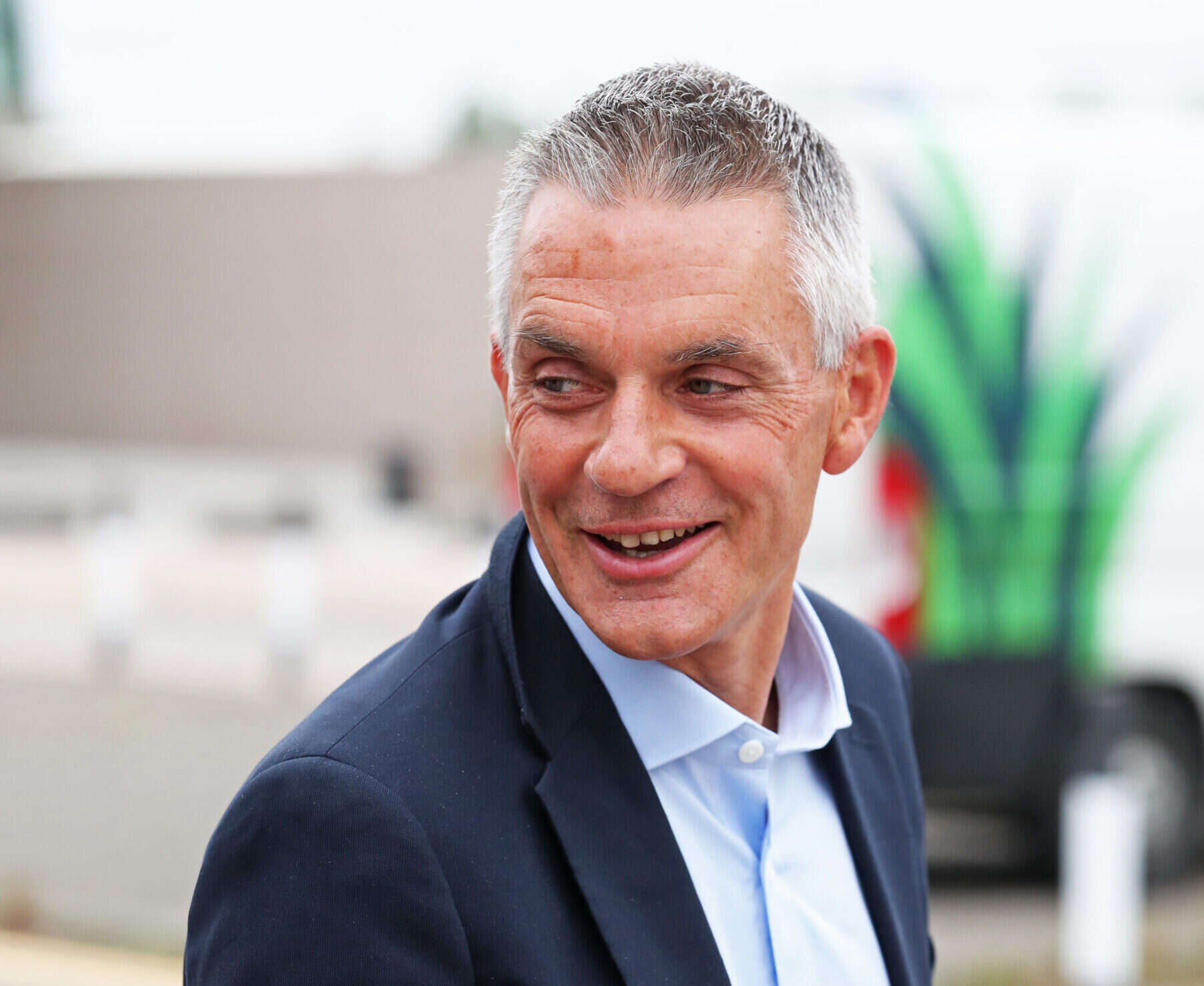
Local media bosses have vented their fury after BBC director-general Tim Davie expressed amazement at “pulling off” forced licence fee payments.
At a time when many commercial media publishers are cutting staff and making redundancies to cope with an economic downturn, BBC licence fee income rose by £50m to £3.8bn last year.
Press Gazette counted more than 1,000 UK and US newsroom job cuts in January alone, with Reach and News UK among those forced to shed staff.
Speaking to staff at BBC South on Tuesday, the Telegraph reports that Davie said: “It’s truly amazing what we’re pulling off, by the way. That most households are pretty happy paying a licence being a forced payment. It’s amazing what we’re pulling off.”
The BBC typically spends more than £100m ensuring every household in the UK pays £159 per year for owning a TV set. In 2021 49,000 people were prosecuted for licence fee evasion.
Davie said: “People think we’re the cat with the cream at the moment and I know it doesn’t feel like that internally and I really am very sensitive about saying that.
“Our budgets are slightly better than some of the commercial operators and the lovely thing is we can play long-term as well, we don’t need to make a profit on everything which is glorious.”
Jim Mullen, the chief executive of the UK’s largest regional newspaper and website publisher Reach, said: “Many media businesses, and in particular local publishers, do not have the so-called ‘glorious’ freedom to operate without needing to turn a profit, yet day in and day out, Reach’s titles produce excellent journalism, whether in campaigning for Awaab’s Law, covering the WSL with our dedicated women’s football reporting team, or setting the world alight with Lizzie lettuce.
“I take a lot of pride in the fact that as a plc, Reach’s reliance on profit also keeps us accountable to our readers. Every day, our success as an organisation hinges on our ability to better engage with and understand our audience.
“At a time when the BBC is seemingly determined to set itself up as a direct competitor of local news in the UK, I would hope this clear lack of regard for the work commercial publishers do in the communities they serve, doesn’t go unnoticed.”
On the subject of his own £525,000 salary (which rose 16.6% in September 2021) Davie said: “You know I get extremely well paid. But everyone in my top team takes a lot less money than they can get.”
Davie came 34th in Press Gazette’s analysis last year of the best-paid media executives in Britain.
Regarding Davie’s comments to BBC South staff, a BBC spokesperson said: “Tim Davie has been speaking to teams across the BBC about the organisation’s strategy, alongside taking questions from staff. It’s not unusual for these topics – among many others – to be raised in internal discussions.
“In talking with BBC teams, Tim regularly discusses the privilege of having the licence fee; the continued need to deliver outstanding content and distinctive journalism; the challenging circumstances facing the media industry, including the BBC; and, the fact that the BBC can take creative risks that are harder for others to do. The commercial media sector generally pays staff more than the BBC does, however many people work at the BBC because they believe in public service and have access to great opportunities.”
Davie was speaking to BBC staff as they prepare to strike over cuts to local radio services, which are being axed in favour of more online local news. This is a move that has infuriated local newspaper publishers who believe it will provide unfair competition for readers. Separately, the BBC is making 70 redundancies as it merges its BBC News and World News TV channels.
“No one loves radio more than me but look at the RAJARs,” Davie said. “I say it with a heavy heart but we’re just not going to be able to deliver that through linear radio alone. No one can.”
According to the latest figures from audience monitoring body RAJAR, BBC Local Radio reached 7.8m per week in the final quarter of 2022 for an average of seven hours (down 14% year-on-year).
Iliffe Media editorial director Ian Carter warned that a media landscape where the BBC were the only player “would be a poor one indeed” as he noted Davie’s comments on Twitter.
He cited a string of striking stories broken by his website, Kent Online, this week, including a first interview with the man who discovered his mum and sister dead in a burger van, and the story of a woman “held hostage” by her local Esso garage because her phone payment failed.
He said: “It’s a more challenging time for regional media than ever, and we all debate how best to engage audiences and find sustainable revenue streams. The starting point always has to be talented reporters and editors finding good, local stories though…
“None of those stories were brought to you by the Beeb, although one was belatedly followed up. A media landscape where they were the only players would be a poor one indeed.”
The New Statesman reported this week that BBC staff morale is at rock bottom following a row over chairman Richard Sharp’s relationship with former Prime Minister Boris Johnson and many high-profile staff departures.
This article was updated after publication to incorporate comment from a BBC spokesperson.
Email pged@pressgazette.co.uk to point out mistakes, provide story tips or send in a letter for publication on our "Letters Page" blog
